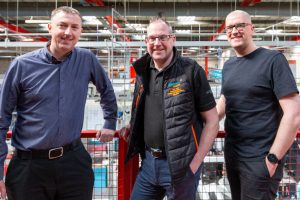Cameron hopes £200m TICs will drive growth

MORE than £200m of Government investment in a network of elite Technology and Innovation Centres to drive growth in the UK’s most high-tech industries has been announced by the Prime Minister.
Speaking at the CBI conference David Cameron said the investment would bridge the gap between universities and businesses, helping to commercialise the outputs of Britain’s world-class research base.
The cash will be pumped in to the TICs ver the next four years, supporting businesses in developing and commercialising new technology.
In the wake of last week’s drastic cuts to the public sector – which will cost nearly 500,000 jobs over the next four years – Mr Cameron is pinning his hopes for growth on the private sector.
Under Mr Cameron’s proposals each centre will focus on a specific technology where there is a potentially large global market and a significant UK capability.
North West universities such as Manchester and Liverpool, which both boast world-class research credentials as evidenced by the recent Nobel prize for two Manchester scientists, will surely feature in the project.
The TICs network will be established and overseen by the Technology Strategy Board (TSB) but individual centres will have a high egree of autonomy.
The TSB will determine which existing centres to invest in by April next year and will then consider requirements for new
centres.
Mr Cameron also promised a “forensic, relentless approach” to ensuring the UK’s future economic growth.
In his first speech to the CBI since becoming prime minister, he said the government would offer help to ensure new companies can prosper.
Mr Cameron also announced £30bn would be invested in transport projects over the next four years. He said countries such as China had been investing massively in new roads and rail links while the UK had “stood still”.
CBI director general Richard Lambert said: “The Prime Minister demonstrated a real passion for business and an understanding that only business will create growth.”








